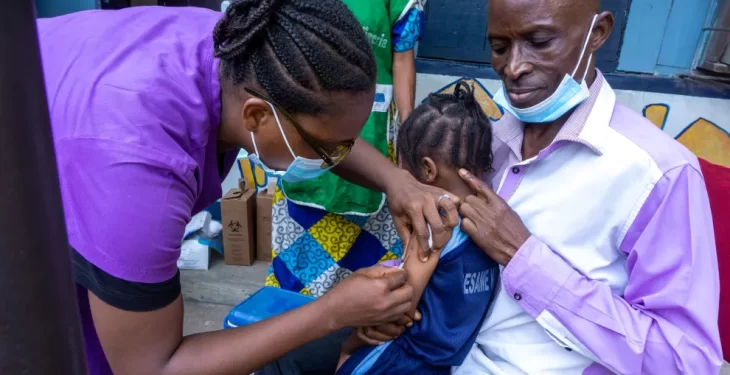Fifty years after the initiation of the expanded immunization program, a UNICEF Health Specialist, Dr. Ijeoma Agbo, emphasized the urgent need for Nigeria to overhaul its vaccination system. This revamp is essential to tackle the disparities in vaccine access and other gaps in immunization, which leave countless children susceptible to vaccine-preventable diseases.
Dr. Agbo highlighted the considerable progress made globally in immunization since 1974. Nigeria, for instance, initially started with six vaccines and has now expanded to approximately 13, while some nations have even more. Despite these advancements, Nigeria currently harbors the largest population of zero-dose children worldwide, estimated at around 2.2 million unvaccinated children.
In an exclusive interview with Good Health Weekly, Dr. Agbo lamented the persistent challenges of unequal access to immunization in Nigeria. She noted disparities in vaccination coverage and the alarming number of unvaccinated and zero-dose children, posing significant threats to the progress achieved in immunization efforts.
Dr. Agbo underscored the urgent need for increased investment in immunization, emphasizing that it’s not just about financial resources but also entails strengthening the entire health system. This includes bolstering infrastructure and human resources and ensuring vaccine availability at every healthcare facility.
The implications of having unvaccinated children extend beyond those directly affected, posing risks to both vaccinated and unvaccinated individuals. Dr. Agbo cited instances of preventable disease outbreaks, such as diphtheria, which reemerged after years of absence, emphasizing the critical role of immunization in disease prevention.
Immunization stands as a paramount public health intervention that prevents diseases and significantly reduces morbidity and mortality rates, particularly among children under five years old. Dr. Agbo highlighted the remarkable progress achieved through immunization, including eradicating smallpox and significant reductions in under-five mortality rates through the introduction of new vaccines.
Discussing the Nigerian immunization schedule, Dr. Agbo outlined the vaccines administered at various stages of a child’s life, emphasizing the importance of timely vaccination to prevent life-threatening diseases. She also highlighted the introduction of the human papillomavirus (HPV) vaccine, which is particularly crucial in combating cervical cancer, the second most common cancer in Nigeria.
Addressing misconceptions and misinformation surrounding vaccines, particularly the HPV vaccine, Dr. Agbo stressed the importance of accurate information dissemination through the media. She underscored the significance of HPV vaccination in preventing cervical cancer and urged for increased awareness and trust-building in vaccines.
Dr. Agbo emphasized the collaborative efforts between UNICEF and the government to promote immunization but stressed the need for community involvement and trust-building initiatives. She encouraged mothers to ensure their children receive vaccinations, reiterating that immunization is free at all public health facilities.
In conclusion, Dr. Agbo called for sustained investment and commitment to immunization to ensure the health and well-being of all children. She urged stakeholders, including government leaders, communities, caregivers, and the media, to prioritize immunization and work collectively towards achieving universal vaccine coverage, akin to the successes in eradicating smallpox and polio.

